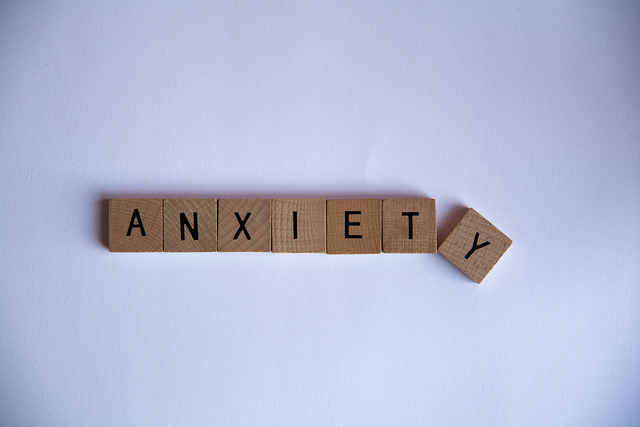Expert Explains Difference Between Socially Awkward and Social Anxiety

By:
Social anxiety disorder (SAD, fittingly), is an affliction that affects around 15 million American adults, according to the Anxiety And Depression Association of America. And it's largely and woefully misunderstood.
 PracticalCures.com/Flickr - flic.kr
PracticalCures.com/Flickr - flic.kr
When we talk about SAD, we're not talking about being shy on a date or nervous at a job interview — we're talking about an anxiety so overwhelming that it's oppressive and inhibiting.
ATTN: spoke with an expert on anxiety, Dr. Laurie Dickstein-Fischer, who has a master’s from John Hopkins University and a Ph.D from Northeastern University in psychology. She's an assistant professor at Salem State University and director of the school counseling program.
What's the difference between having social anxiety and being socially awkward?
First of all, anxiety is not necessarily a bad thing. I think we all need a level of anxiety in our life to adequately perform.
I think everyone experiences [social anxiety], it's very normal. But for some individuals the frequency and intensity of it is so severe that the person is diagnosed with social anxiety disorder.
Clinicians often look at the diagnostic criteria from the Diagnostic Statistical Manual (DSM-5). Often there's a lot of misdiagnosis. You have to have had it for at least 6 months. And it's an intense fear of one or more social situations in which the individual is afraid of being judged. Like being nervous to go to work, meet new people, make a speech, go to a mall, supermarket, or party.
A lot of people have social anxiety, but not a lot have social anxiety disorder. If I were to diagnose a client, I'd have to look at all of this criteria for it. I think it's a term that's thrown around a lot but only a small percentage of people have the actual diagnosis.
When I hear "socially awkward," I think of that as a social construct. I think depending on the culture, someone might be socially awkward. The term socially awkward is a cultural construct we give certain individuals because of lack of understanding social norms, which may differ in certain social circles.
Among what age group is social anxiety most prevalent?
I think it spans everybody, but we do know right now it's very prevalent in children [meaning 6-12 year-olds]. Kids are often diagnosed with it. Unfortunately, we see a lot of school refusal and avoidance in accepting this. But I think we're seeing an increase in social anxiety in the population due to more stressors that are going on.
Like what?
I think social media increases the disorder, sometimes. Some of my students and clients would come in on a Monday, anxious and distressed because everyone was at a party and they weren't invited. They feel they're the only one who didn't do something fun on a Saturday night. My research into this shows that people only post things that make themselves look better. We don't choose a picture of us looking horrible. We mold our profiles into what our best selves are. I think people forget that. They think they're the only ones, but they forget that they themselves are probably doing the same thing.
I think sometimes we feel we need for outside validation to make us feel better. For example, think about when you were 9 or ten, there wasn't a Facebook, so people wished you a happy birthday in person. But now, people look at their Facebook to see how many random people online wished them a happy birthday, or posted something.
How can one treat SAD?
That's a tough question. I think there's a lot of different evidence to treat it. Often people will have behavioral or exposure therapy. Or sometimes, medication with therapy. But usually we see people using cognitive behavior techniques.
I think a lot of people don't have social anxiety at a diagnostic level. But working with a therapist would be very helpful, and you would go through a checklist to do thorough diagnosis. It's like, "how do I know if I have strep throat?" You'd go to the doctor. But if you have [SAD] or not, it doesn't matter — if you feel anything prevents you from achieving your goals, then you should get help so you can be the best self you can be.
